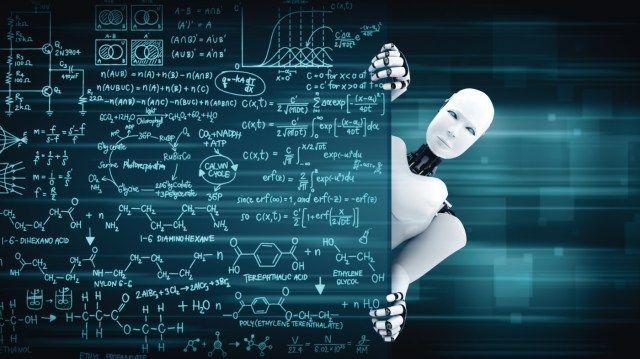AI's Impact on the Workplace: Enhancing Human Skills Rather Than Replacing Jobs
2 Sources
2 Sources
[1]
Far from replacing jobs, AI could help take human skills to a new level
Humans can still bring vital skills to the table, so it's not all doom and gloom Tackling early concerns that artificial intelligence could replace human workers and take our jobs, new Workday research has claimed AI could actually act as a catalyst for a skills revolution. Tackling the popular narrative of scepticism, Workday's report revealed 85% of active AI users report a high level of optimism surrounding the technology, a noteworthy upgrade over the 78% of non-adopters reporting similar sentiments. It's not just in skills where workers are seeing the benefits of AI - 93% of active users also report having more free time when using the technology, enabling them to focus on higher-level tasks like strategy and problem-solving. As AI becomes more embedded in everyday workflows and organizational strategies, we're beginning to see where its roles are most appreciated, and where the value of human workers remains critical. For example, humans bring more to the table when it comes to ethical decision-making, empathy, relationship building, and conflict resolution, rendering these the least likely areas to be replaced by AI. More than four in five (83%) believe AI will make human skills like the ones mentioned above more important to employers. "By embracing AI for good, we can elevate what makes us uniquely human - our creativity, our empathy, our ability to connect - and build a workplace where these skills drive success," noted Workday CTO Jim Stratton. Looking ahead, Workday calls for joint efforts by tech companies, organizations and even governments to ensure AI's benefits are felt by everyone. The report also highlights the need for a focus on crucial human skills.
[2]
AI is shifting the workplace skillset. But human skills still count
Paradoxically, the greater focus on technology also means human skills are more in demand. In work, things change - and that pace of change is accelerating. Globally, more than 10% of workers hired today have job titles that didn't exist in 2000 (in the US, it's closer to 20%). As revealed in our just-released Work Change Report: AI Is Coming To Work, for companies, leaders, and professionals alike the workplace is almost unrecognizable compared to just one generation ago. From the growing influence of artificial intelligence on daily tasks and emerging skills, to the creation of new jobs, these trends are starting to redefine today's workplace. As businesses pivot to address trends such as technological innovation and shifting demographics, leaders are mobilizing their workforces to adapt and thrive in an ever-changing environment. At the same time, professionals are responding to these changes, often by upskilling, reskilling, or pursuing entirely new career paths. The journey will look vastly different for those entering the workforce today than it did 15 years ago. Professionals are likely to hold twice as many jobs throughout their careers compared to their predecessors: That's 20 jobs now versus 11 in 2010. While these changes present unique challenges for businesses, such as talent retention and ongoing upskilling, they also create new opportunities for innovation and job market dynamism. Let's dive into exactly how work is changing in the emerging age of AI: AI skills are everywhere: Today, people are more than twice as likely to add AI skills than in 2018. Even occupations that were less likely to see the value of AI skills - for example, recruiters, marketers, sellers and healthcare professionals - are now seven times more likely to add AI skills than just six years ago. Additionally, AI literacy skills are a key differentiator for job seekers: Professionals who embrace AI will get ahead of the competition and effectively set themselves up for long-term career success. Hiring managers are clued in, with more than half saying they wouldn't hire someone without AI literacy skills. In fact, while only one in 500 jobs on LinkedIn list AI literacy skills, it's not surprising that demand for these types of skills have increased more than sixfold in the past year. Workers are broadening their skillset: Globally, professionals today are adding a 40% broader skillset to their profiles than they did in 2018. And it's not just professionals: Companies and leaders are starting to understand the importance of upskilling their teams on AI. AI literacy skills, like prompt engineering and proficiency with tools like ChatGPT or Copilot, are just as important. Since 2023, the number of AI literacy skills added by LinkedIn members has increased by 177%. Soft skills are increasingly important: In roles that were once less likely to value human skills, the importance of these specific skills has grown by 20% since 2018. As organizations come to grasp the full extent of what AI can do, they're also coming to terms with all that it can't do - those tasks that require the uniquely human skills that all businesses need. Today's workplace evolution is pushing executives and employees alike to rethink how they work. While the accelerated pace of change relative to prior technological shifts can feel daunting, it also opens the door to significant opportunities for those who are proactive in adapting and building new capabilities.
Share
Share
Copy Link
Recent research challenges the notion that AI will replace human workers, suggesting instead that it could catalyze a skills revolution and enhance human capabilities in the workplace.

AI as a Catalyst for Skill Enhancement
Recent research from Workday has challenged the prevailing narrative that artificial intelligence (AI) will replace human workers. Instead, the study suggests that AI could act as a catalyst for a skills revolution in the workplace
1
. This optimistic outlook is shared by 85% of active AI users, compared to 78% of non-adopters, indicating a positive correlation between AI adoption and workforce optimism1
.Increased Productivity and Focus on Higher-Level Tasks
One of the key findings of the Workday report is that 93% of active AI users report having more free time when using the technology
1
. This additional time allows workers to focus on higher-level tasks such as strategy and problem-solving, potentially leading to increased productivity and job satisfaction.The Growing Importance of Human Skills
As AI becomes more integrated into workplace processes, the value of uniquely human skills is becoming increasingly apparent. Skills such as ethical decision-making, empathy, relationship building, and conflict resolution are considered the least likely to be replaced by AI
1
. In fact, 83% of respondents believe that AI will make these human skills more important to employers1
.AI Skills in High Demand
The Work Change Report by LinkedIn reveals that people are now more than twice as likely to add AI skills to their profiles compared to 2018
2
. This trend is not limited to traditionally tech-focused roles; recruiters, marketers, sellers, and healthcare professionals are now seven times more likely to add AI skills than they were six years ago2
.Broadening Skill Sets and AI Literacy
Professionals are expanding their skill sets, with LinkedIn data showing that workers today are adding a 40% broader range of skills to their profiles than in 2018
2
. AI literacy skills, such as prompt engineering and proficiency with tools like ChatGPT or Copilot, have seen a significant surge in demand. Since 2023, the number of AI literacy skills added by LinkedIn members has increased by 177%2
.Related Stories
The Evolving Job Market
The workplace is undergoing rapid transformation, with more than 10% of workers hired today having job titles that didn't exist in 2000
2
. This change is even more pronounced in the US, where the figure is closer to 20%2
. As a result, professionals entering the workforce today are likely to hold twice as many jobs throughout their careers compared to their predecessors – an estimated 20 jobs now versus 11 in 20102
.Balancing Technology and Human Skills
While the focus on AI and technological skills is growing, there is a parallel increase in the importance of soft skills. In roles that were once less likely to value human skills, the importance of these specific abilities has grown by 20% since 2018
2
. This trend underscores the need for a balanced approach to skill development in the AI era.Future Outlook and Recommendations
Jim Stratton, CTO of Workday, emphasizes the potential of AI to elevate uniquely human qualities: "By embracing AI for good, we can elevate what makes us uniquely human - our creativity, our empathy, our ability to connect - and build a workplace where these skills drive success"
1
. The report calls for collaborative efforts between tech companies, organizations, and governments to ensure that the benefits of AI are widely distributed1
.References
Summarized by
Navi
Related Stories
AI Skills Gap: The Critical Challenge in Workplace Transformation
05 Apr 2025•Business and Economy

AI as Job Shifter: ManpowerGroup's Perspective on the Future of Work
22 Aug 2025•Business and Economy

AI Reshaping Talent Acquisition: ManpowerGroup Insights on the Future of Work
14 Jun 2025•Business and Economy

Recent Highlights
1
Google Gemini 3.1 Pro doubles reasoning score, beats rivals in key AI benchmarks
Technology

2
ByteDance's Seedance 2.0 AI video generator triggers copyright infringement battle with Hollywood
Policy and Regulation

3
ChatGPT cracks decades-old gluon amplitude puzzle, marking AI's first major theoretical physics win
Science and Research





